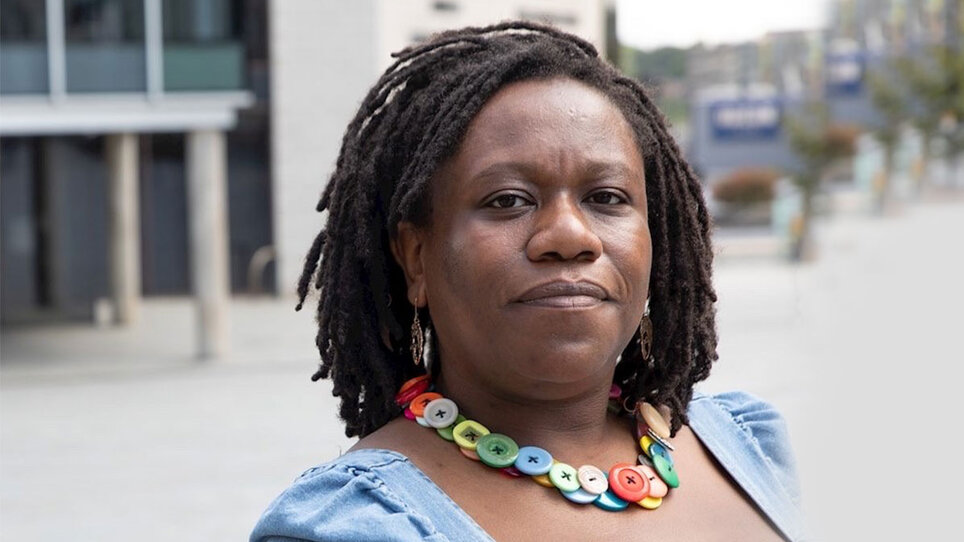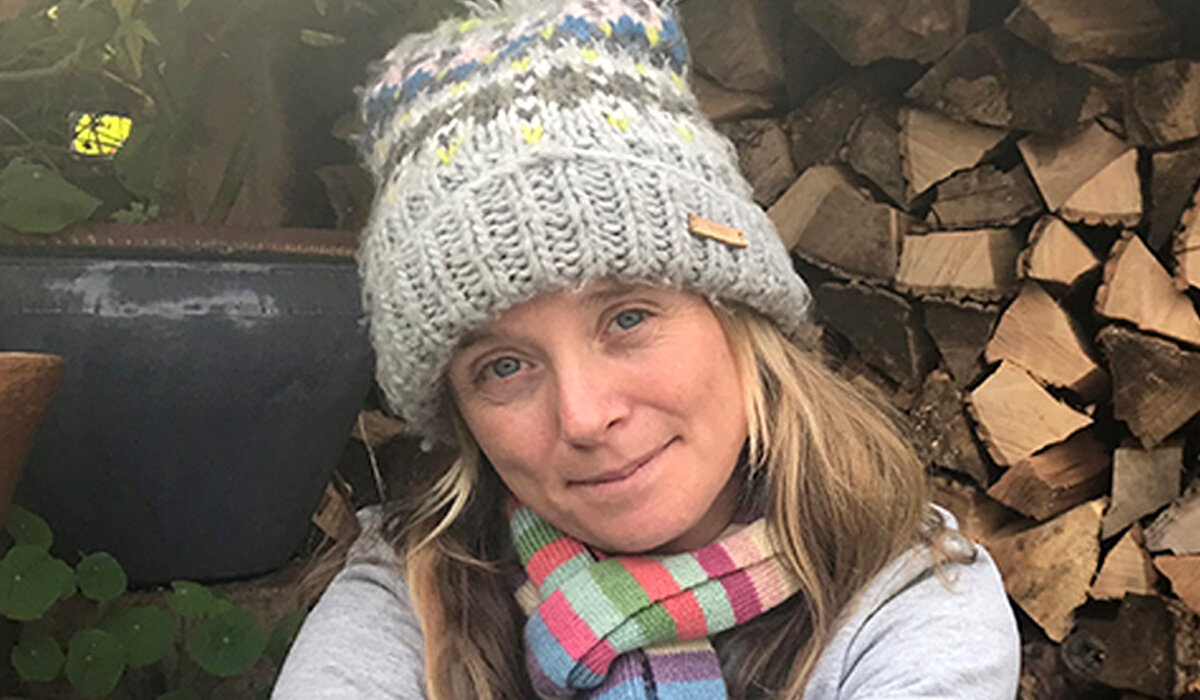
"It is an honour to be born Black. Equally, it means that you will experience racism, prejudice and have to work twice as hard for half the acknowledgement."
Melissa Simmonds
- on why she is proud to be Black and autistic
Celebrating Black History Month with...Melissa Simmonds
Black History Month celebrates the enormous contribution Black Britons have made to society. This is an important time to highlight Black autistic people’s stories. The theme for this year’s Black History Month is ‘Proud to be’ and invites Black people of all ages throughout the UK to share their stories and experiences, and what they are proud to be.
With this in mind, we caught up with Melissa Simmonds, autistic woman, advocate, and mum to two autistic children. We chatted to Melissa about the inequalities many Black autistic people face in society, why she wishes black history could be celebrated all year round, and expressing her culture through music, art, and poetry.
The theme for Black History Month this year is ‘Proud To Be’. Can you talk to us about what you’re proud of as a Black autistic person?
First and foremost, I feel I am a mother who loves my kids unconditionally and I feel really proud at how happy and healthy they are. I also feel I am a good friend and ally to those who have less power than I do.
I think I help to change the narrative and the perspective of those around me. I help to educate them on the fact that autism does not only affect white boys.
"I think I help to change the narrative and the perspective of those around me. I help to educate them on the fact that autism does not only affect white boys."

I help to educate people on the inequalities that Black autistic people experience at the hands of those in positions of power within the autism sphere.
I challenge people to always ask autism event organisers about the lack of diversity in their panels and keynote speakers. How many Black and Brown people hold key positions in the prominent autism organisations (including the National Autistic Society). I am never afraid to ask difficult questions.
When were you diagnosed as autistic?
Like many women, I realised I was autistic after I recognised it in my daughter. My son was diagnosed 11 years ago. Thankfully a person I worked with was a member of a Sheffield-based charity called Asperger’s Children and Carers Together (ACCT). Going there every week helped me to meet other autistic children.
I used to think only boys could be autistic, until I met autistic girls and mothers. The things I struggled with started to make sense and I realised that I was autistic too. My daughter received her diagnosis six years ago and I received my diagnosis a year later.
What does Black History Month mean to you and your family? Will you be celebrating this year?
I celebrate and acknowledge the contributions my family and ancestors have made daily. I wish BHM didn’t exist, but it is needed because the UK conveniently forgets the contribution that people who look like me have made to its wealth and infrastructure.
My great grandparents came to Sheffield in the 1950s and worked as nurses, porters and in manufacturing. They have all experienced racism and prejudice because of the colour of their skin. The hostile environment they came to; their sacrifices will never be forgotten by me.
What is being autistic like for you?
It’s a difficult question to answer, as I do not know what it feels like to be anyone other than myself - a Black, autistic cisgender woman.
I do feel happier now that I know I am autistic. At first it was hard. I’d replay things that had happened in my past and felt sad that I didn’t know I was autistic. Perhaps I wouldn’t have struggled as much as I did, perhaps my health would be better than it is. I struggle with fatigue and sensory overload most days. However, I am much happier now that I understand myself better.
"It’s a difficult question to answer, as I do not know what it feels like to be anyone other than myself - a Black, autistic cisgender woman."
Many autistic people face discrimination getting support and a diagnosis, and we know Black people can have even more difficulty getting a diagnosis and support. What was your experience?
Once I made the decision to pursue the diagnosis, it took 18 months in total. Thankfully, I had a supportive GP, family and friends around me. I acknowledge that I am in a position of privilege, as English is my first language, I have a degree and postgraduate qualifications too. This does not mean I do not face unconscious bias and microaggressions. It just means I understand it and am in a (somewhat) better position to challenge it.
I know of Black children receiving later diagnoses because people perceived their behaviour as rudeness and aggression, instead of sensory overload and communication difficulties. These children end up in the school-to-prison pipeline. Instead of receiving support they need, they are excluded and criminalised.
Why do you think representation is important, and what would you like to see more of in the media?
When people who look like me are not represented in the media, it paints a false narrative of what is truly happening in society. The issue is rife around the narrative of autism too. The initial scholars were white, Eurocentric men and they created the concept of autism by observing white boys.
"When people who look like me are not represented in the media, it paints a false narrative of what is truly happening in society."

A century later and there is still little to nothing from the Black perspective. Most of the current scholars and autistic celebrities, influencers are white. Anyone in a position of power has a responsibility to change this, or they are complicit in the continuous racial bias in the field.
Is there anything from your culture that inspires you or would like to share?
Our resistance is something that I am equally proud of and feel sorrow over. My ancestors have had experienced many atrocities, yet we continue to try to succeed.
I am from an incredibly creative and vibrant culture that uses a plethora of mediums to tell you about their lived experiences. From Grime, to Lovers Rock, poetry to culinary arts, fashion to dance, there are so many amazing ways for Black people to express their culture. I am particularly inspired by poetry and dabble in it myself. It’s a medium that helps me purge the stress from my body.
"I am from an incredibly creative and vibrant culture that uses a plethora of mediums to tell you about their lived experiences. From Grime, to Lovers Rock, poetry to culinary arts, fashion to dance, there are so many amazing ways for Black people to express their culture."
Are there any Black people who you admire? Please tell us about them.
It is an honour to be born Black. Equally, it means that you will experience racism, prejudice and have to work twice as hard for half the acknowledgement. Because of this, I admire Black people who speak out about injustices. Speaking out is a scary thing as it can affect your career, friendships, and even your health.
"It is an honour to be born Black. Equally, it means that you will experience racism, prejudice and have to work twice as hard for half the acknowledgement."
I admire my kids, who knew they were autistic as young children, so are proud of who they are. I admire my mother who has always been my biggest supporter and champion.
I admire Black people, living their everyday lives, who are succeeding at making it through another day. I see you, all of you. Keep on keeping on.

Autism and BAME people
Our 2014 report, Diverse Perspectives, suggests it can be even harder for people from Black, Asian and minority ethnic groups to get a diagnosis and support.
Find out moreSimilar stories

"We need Black history to be shared and discussed widely..."
Tylan Grant
- on why we should be discussing Black history all year round
Read more

"Anyone delivering educational support needs to look beyond stereotypes and focus on the child in question."
Coral Bentley
- on educational support for Black autistic students
Read more

"Don't feel like you have to hide your autism from your children. That way they know what's going on and they don't worry about it."
Purple Ella
- on parenting and discussing autism with her children
Read more

The Spectrum magazine
Explore one of the UK's largest collections of autistic art, poetry, and prose. The Spectrum magazine is created by and for autistic people, and is available both online and in print.
Read the Spectrum





You are not alone
Join our community
Our online community is a place for autistic people and their families to meet like-minded people and share their experiences.
Join today